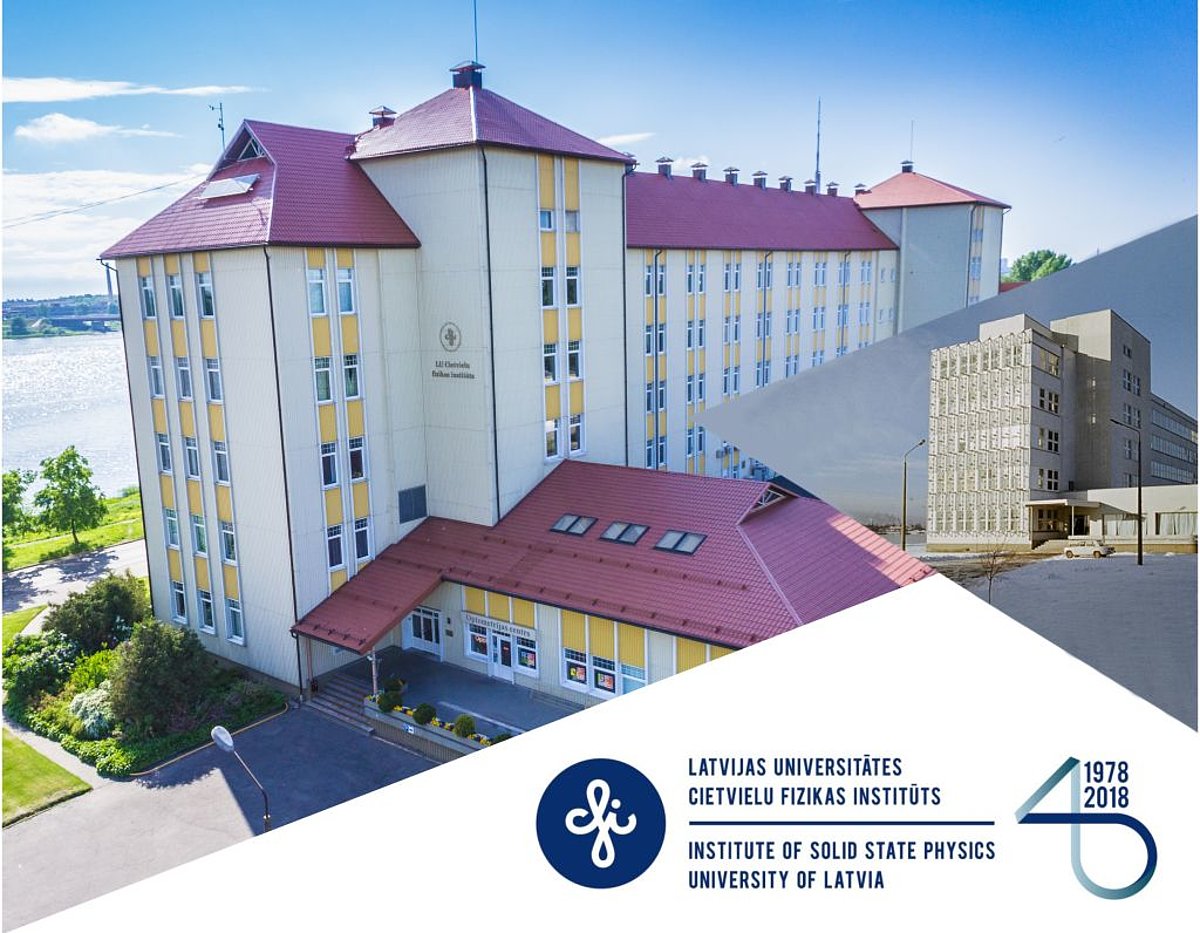
Since the foundation of the Institute, it has rapidly developed and progressed as one of the leading institutes in the former Soviet Union. The future development of the ISSP UL took place both during the years of independence of Latvia and being a part of the European Union. Today, ISSP UL is the world-renowned leader in the field of solid state physics, materials science and interdisciplinary sciences in Latvia.
Currently, the Institute employs nearly 100 highly qualified doctors, providing international exchange of research experiences and offering innovative solutions to the industry. In 2012, when it became a coordinator of the European Regional Development Fund (ERDF) project, investing in the development of infrastructure for the Latvian Nanostructured Research Centre (LATNANO-C), clean room facility was created to serve research, education (for bachelor, master's and doctoral studies), innovations (technology transfer in close cooperation with companies) and international cooperation. Clean room facilities and developed infrastructure, act as an Open-Access laboratory for the synthesis, advanced characterisation and analysis of different materials as well as serving the needs and demands of industrial partners.
ISSP UL provides R&D solutions for various business enterprises offering its research expertise ranging from the studies of the properties of the surface coatings and optical properties of glass fibres to the concrete gas permeability studies and the manufacturing of new LED prototypes.
Along with the development in the scientific arena and advancements in the industrial applications, ISSP UL is strongly involved in the education process of students enrolled in the Physics Department at the University of Latvia. Additionally, numerous students from other faculties of the UL, other universities, and even school students are completing their theses and scientific works at the laboratories of the institute. Furthermore, ISSP UL participates in various educational and social activities for the general public, and attracts young talented individuals to develop their career in natural sciences.
Thanks to the financing of the project CAMART2 (Centre for Advanced Materials Research and Technology Transfer) approved in 2016, the ISSP UL has become the only scientific institution in the Baltic states supported by the European Commission under Horizon 2020 WIDESPREAD 1-2014:Teaming call. CAMART2 is based on exchange of knowledge and synergy with innovation-intensive Consortium partners from Sweden – KTH Royal Institute of Technology and RISE Acreo.
In 2017, ISSP UL started extensive organizational and infrastructure changes by implementation of the Institute's development strategy and the objectives of the CAMART2 project - Modernization of the Institute, to become the most advanced centre for education, research, innovation and technology transfer in the Baltic States.

 Akadēmiskais centrs
Akadēmiskais centrs